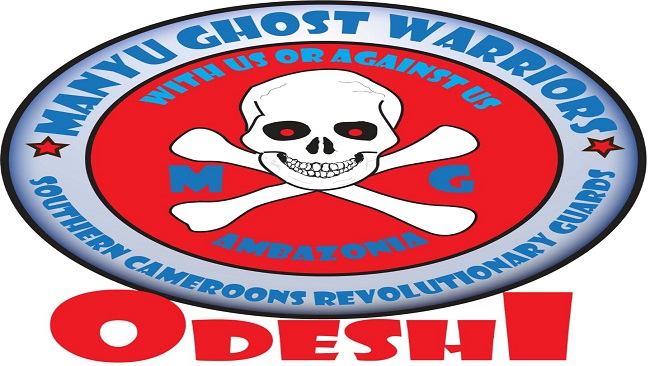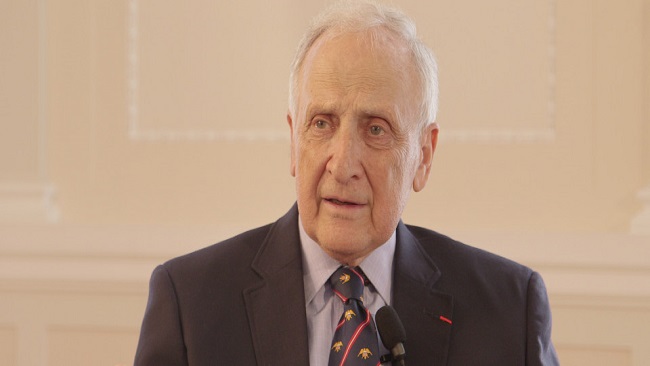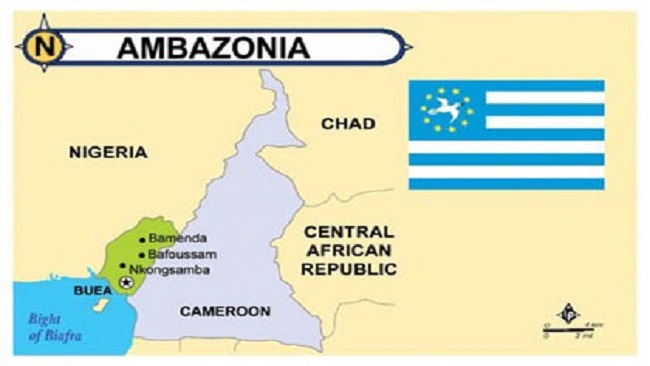1, October 2019
Major National Dialogue: Thou shall not cut and run 0
As the major national dialogue known by many Southern Cameroonians as “national badluck” wraps up its second day of deliberations, many non-government participants are already cutting and running, as government-appointed chairs of the various committees are working hard to frustrate efforts by Southern Cameroonians to have the form of the state and constitution changed.
Prominent lawyer, Akere Muna, and opposition leader, Jean Jacques Ekindi, have already quit, calling the dialogue a charade designed to deceive the international community.
Barrister Akere Muna left yesterday while Jean Jacques Ekindi left today for his native Douala.
It is being reported that prominent human rights lawyer, Barrister Felix Nkongho Agbor Balla, is also thinking of leaving as government agents are ramping decentralization down the throats of those who are hoping to obtain at least federalism out of this charade.
Renowned historian and author, Prof. Victor Julius Ngoh reporting on the disagreements in the decentralization commission wrote that:
“It is hot in the Decentralization Committee. The chair of the Commission has been trying to restrict on discussion of decentralization. It got to a point where some Anglophones especially Agbor Balla threatened to walk out and Minister Garga met me outside and we talked to him and we came back and zeroed in on federalism. Several members are on federalism and dont want the Chair to derail the point”.
But cutting and running will only help the corrupt and dishonest government of Mr. Biya to manufacture resolutions and recommendations that they will present to the international community.
The Biya regime is cash-strapped and any hopes of it getting loans and grants from bilateral and multilateral donors depend on proof that it did actually organize the much- talked about inclusive dialogue and that all parties were represented.
The Southern Cameroons crises that has brought about the dialogue is being upstaged by insignificant themes like multiculturalism, bilingualism, living together and decentralization.
The atmosphere at the conference center is tense as some members of the Southern Cameroonian Diaspora are willing to demonstrate and even cause chaos if the real issues are not discussed.
The Southern Cameroons crisis has put the country in the spotlight for all the wrong reasons and the country’s economy has taken many blows to the liver.
Major state corporations such as CDC, PAMOL and SONARA have been ruined as a result of the crisis.
Many kids in rural Southern Cameroons have been out of school for three years and their fate rides on a successful dialogue that should bring the government and all the warring factions to the negotiating table with a neutral third party facilitating the discussions.
A Swiss initiative backed by Canada and the USA has been rejected by the Yaounde government which has decided to organize a charade.
Many observers say the government has already manufactured the recommendations and will, at the right time, release a document which will point out that many Cameroonians are in support of decentralization that has generated much corruption in the country and left the country’s economy on its knees.
Some analysts argue that a Canadian-style federal system will be ideal for Cameroon; a country of 256 tribes and two major linguistic blocs.
Many observers fear that if the dialogue is not properly managed, it could result in renewed hostilities in the two English-speaking regions of the country where some 3,000 civilians and soldiers have lost their lives.
By Dr Joachim Arrey
























1, October 2019
Who are Cameroon’s self-named Ambazonia secessionists? 0
Two years ago secessionists earmarked Cameroon’s English-speaking regions for a new African nation, they named Ambazonia. But their pursuit for self-rule has led to death and destruction of civilians in the crosshairs.
October 1 this year will mark the second anniversary since separatists in Cameroon’s northwest and southwest regions proclaimed a so-called independent state “Ambazonia.” It is a symbolic date: on the very same day in 1961, the East, which was then administered by the French, and the West, administered by the British, were united to form Cameroon. Something, the “Ambazonians” want to reverse. This year, the day will be under close watch: Cameroon’s President Paul Biya has announced plans to hold a “national dialogue” with the aim of ending the conflict.
It is a conflict which is scarred by violence and severe human rights violations from both security forces and armed groups, Amnesty International reported. 3,000 people have died and close to half a million have been displaced. Multiple separatists groups have formed in the southwest and northwest of the country.
Who are the ‘Amba-boys’?
Agbor Balla, an Anglophone human rights lawyer, tells DW: ” I think each county or each community is coming up with its own groups. There are about 10 groups, including the Ambazonia Defense Forces, the Tigers, and groups working for the interim government of Ambazonia.” All of these groups serve one purpose: the fight for independence. It is a struggle that has a long history.
The conflict is scarred by violence between seperatists and security forces
In the run-up to their independence, residents of British-administered Southern Cameroon, which included the northwest and southwest regions, held a referendum on 30 September 1961 under the auspices of the United Nation. The question was whether they wanted to belong to the newly Independent Federal Republic of Nigeria or to French-administered Cameroon. Under promises of a federal state and English as the official language, English-speaking Southern Cameroon joined the majority French-speaking East. Despite the agreement, Cameroon became a unitary state in 1972. “Many think that if we had remained faithful to the Federal Republic of Cameroon we would not have had the problems we have now,” Cardinal Christian Tumi tells DW.
Marginalizing Cameroon’s Anglophone regions
In the 1990s, Anglophone parties issued threats of declaring independence unless the old constitution was re-instated. They felt marginalized by the majority francophone government. Joseph Wirba, self-exiled Cameroonian MP, told DW: “We joined a nation that did not want our freedom and they presumed that they had to eliminate our culture gradually, to reduce us to second class citizens. That neglect pushed people gradually over the years to that extreme to say: no, we can not continue to be treated that way.”
On 12 October 2016, lawyers and teachers started demonstrating peacefully. Schools were closed and the ‘ghost town’ strikes started – for several days each week, shops and institutions closed their doors. The government responded by shutting down the internet, arresting and intimidating protestors.
Independence of ‘Ambazonia’
On 1 October 2017, separatists declared an independent state, which they named Ambazonia. The government sent in forces, and large-scale fighting broke out. Bullets and tear gas were unleashed onto civilian population the cross-hairs. According to Amnesty International, 17 people were killed and hundreds more were wounded.
The southwest has been torn by two years of clashes
Reverend Thomas Mokoko Mbue, from the Presbyterian Church in Cameroon, says in a DW interview: “It was the beginning of a radical movement towards armed struggle. The argument was that the government had attacked their people who were unarmed and that they needed to defend them, so armed groups were formed.”
No chain of command
Freedom fighters, radicals, or Amba-boys – nowadays, the separatists have many names. Mark Bareta, a Cameroonian activist in the diaspora fighting for Ambazonia, explains: “At the moment we have different groups, different structures: Those who decided to pick up arms and are fighting the republic, those doing diplomacy and those providing support to those in the bushes.”
The groups don’t have a chain of command. “You cannot really identify how they operate,” Balla says. People like Sisiku Ayuk Tabe, one of the imprisoned Cameroon Anglophone separatist leaders, would not be controlling the movement. Tabe and nine of his followers were convicted of charges including terrorism and secession. However, “the ones acting on behalf of Sisiku are very important, some take orders from them,” Balla says. “Some leaders of the groups are in contact, they make joint statements.”
The lines between good and evil
Some of the armed groups are led and funded by Cameroonians living in the diaspora, Balla says. “The diaspora, these are Cameroonians. Some want to see things changed, some of them want to have an independent state, some of them might have had their issues with the government. Some of them might have been blacklisted and they cannot come back to the country. So some hope to come back to an independent state.” However, most groups survive through kidnappings and ransom.
Many separatist leaders and followers have been imprisoned
The fights have become increasingly brutal, schools, hospitals and whole villages are burned down, people murdered and intimidated. “At the beginning, abuses were mostly and largely committed by government forces. Now the line between the bad and the good is really blurred and we see these separatist groups attacking and targeting civilians,” explains Ilaria Allegrozzi from Human Rights Watch. “Civilians are really being caught in the middle of this crisis and paying the highest price.”
A lost generation
Another worrying phenomenon stresses the severity of the conflict. “Armed robbers have re-branded themselves, calling themselves Amba-Groups,” Mbue says. They recruit young men and profit out of the situation: “Kidnappings, ransom taking, breaking into homes. They loot whatever they want to loot.”
Mbue is worried: If the conflict continues, the young generation of “Ambazonia” will be lost. “There are kids of eight years who have never seen a school. Young men dropped out of secondary school and have become barbarians of their community, they lost their basic sense of civilization and only see the option of carrying guns. A whole generation is going down.” Some of the fighters are as young as 15 years, Mbue says. “It is heartbreaking to see those who are to build our community dying because of a senseless war.”
Culled from Deutschwelle